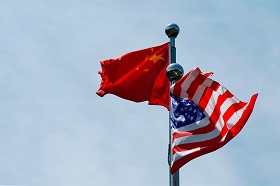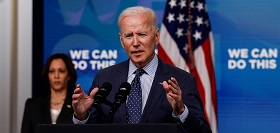One of the most important takeaways from the recent sixth plenary session of 19th CPC Central Committee is that Beijing flatly rejects Westernization as the path to modernize the Chinese society and the national economy. Instead, as it was underscored in the plenary Communiqué, the country will continue to stick to "socialism with Chinese characteristics in the new era." The leadership will preserve and further develop the system that served the people so well over last more than 70 years.
One can argue that the outcomes of the sixth plenary session are yet another manifestation of a more general global trend: The world has been and will continue to be very diverse in terms of political systems, social models and economic patterns of individual nation states. Moreover, the odds are that this diversity will increase further literally in front of our eyes. Instead of the "end of history," we will observe more intense multifaceted competition between different types of social development.
One way to react to this emerging reality is to accept it as a positive trend that enhances the overall stability of the global social system. The more diverse and complex the system is, the more resistant it is to various shocks and disturbances. Accepting the trend, we should focus on how to manage competition within the increasingly diverse and complex world so that this competition will ultimately benefit all of us.
The other way to deal with this reality would be to start fighting against social, political and economic diversity by trying to advance one single model over all others. This is exactly what the Joe Biden administration is committed to doing by launching an ideological crusade against China, Russia and other nations that dare to deviate from the fundamentals of the Western development model. To make its case, the White House has announced a virtual Summit for Democracy to be hosted by the US on December 9–10 with the goal "to renew democracy at home and confront autocracies abroad."
This vision reduces the multi-color palette of the modern world to a minimalist black and white graphics of a global fight between "democracies" and "autocracies." It divides the international system into "us" and "them," into "good" and "bad," into "legitimate" and "illegitimate." Such a reductionist system, if constructed, cannot be stable and shock-resistant by definition: Any major international crisis or a regional conflict could spark high risks of implosion.
One of the most important takeaways from the recent sixth plenary session of 19th CPC Central Committee is that Beijing flatly rejects Westernization as the path to modernize the Chinese society and the national economy. Instead, as it was underscored in the plenary Communiqué, the country will continue to stick to "socialism with Chinese characteristics in the new era." The leadership will preserve and further develop the system that served the people so well over last more than 70 years.
This statement did not come as a surprise to numerous China watchers all over the world. In fact, the critical choice between socialism and Western-type liberalism was not made in November of 2021, but decades ago.
One can argue that the outcomes of the sixth plenary session are yet another manifestation of a more general global trend: The world has been and will continue to be very diverse in terms of political systems, social models and economic patterns of individual nation states. Moreover, the odds are that this diversity will increase further literally in front of our eyes. Instead of the "end of history," we will observe more intense multifaceted competition between different types of social development.
One way to react to this emerging reality is to accept it as a positive trend that enhances the overall stability of the global social system. The more diverse and complex the system is, the more resistant it is to various shocks and disturbances. To make a rough analogy with biology, a natural forest, which is a very diverse and complex ecosystem, is much more resistant to whims of the weather and natural disasters than a man-cultivated monocultural field. Accepting the trend, we should focus on how to manage competition within the increasingly diverse and complex world so that this competition will ultimately benefit all of us.
The other way to deal with this reality would be to start fighting against social, political and economic diversity by trying to advance one single model over all others. This is exactly what the Joe Biden administration is committed to doing by launching an ideological crusade against China, Russia and other nations that dare to deviate from the fundamentals of the Western development model. To make its case, the White House has announced a virtual Summit for Democracy to be hosted by the US on December 9–10 with the goal "to renew democracy at home and confront autocracies abroad."
This vision reduces the multi-color palette of the modern world to a minimalist black and white graphics of a global fight between "democracies" and "autocracies." It divides the international system into "us" and "them," into "good" and "bad," into "legitimate" and "illegitimate." Such a reductionist system, if constructed, cannot be stable and shock-resistant by definition: Any major international crisis or a regional conflict could spark high risks of implosion.
It goes without saying that the nations of the world should firmly oppose corruption, abuses of power by state authorities and gross violations of human rights. If the goal of the Summit for Democracy were to confront these evils on a global scale, there would be no need to make the event exclusive by inviting mostly US friends and allies. If the goal is to advertise the US political, social and economic model, Washington should probably delay the summit and put its house in order first. If the goal is to isolate Beijing and Moscow in the world of politics, this is not likely to work well for the US.
Nations of the world have a right and even a duty to experiment with their political and social development paths. This experimenting contributes to the overall social experience of the humankind. Only history is in a position to judge what models turn out to be efficient, productive and fair and what models will find their place at the dump of human delusions. And history has a lot of means at its disposal to punish leaders, who believe that they possess a "one size fits all" model, which could successfully replace the existing diversity with an imposed universalism.
First published in the Global Times.






